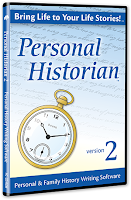From our friends at Ancestry.com:
Access is Free to Public for Most Comprehensive Mexican Census Published Online
PROVO, UTAH – (September 16, 2011) – Ancestry.com, the world’s largest online
family history resource, today
announced a significant addition to its growing collection of online
Mexican and Hispanic historical records. With nearly 13 million records,
the newly available 1930 Mexico National Census
(El Quinto Censo General de Población y Vivienda 1930, México) is the
most comprehensive historical Mexican census available online
.
It is estimated that this census counted approximately 90 percent of
the population, therefore for nearly 30 million Americans who can trace
their families to Mexico, it provides a valuable gateway to begin
researching Mexican family history, especially if
family, vital or religious records are lost.
Mexico’s
first formally recognized federal or national census was taken in 1895.
Starting in 1900, censuses were taken every 10 years, making the 1930
Mexico Census the fifth official government
census, or formally the Fifth General Census of Housing and Population.
This particular census is significant in Mexican history as federal
officials sought to make it a vehicle for national unity. A successful
campaign urging citizens to take part as a civic
duty resulted in an extremely high participation rate - the primary
reason why the 1930 Mexican Census is considered the best Mexican census
conducted in the 20th century.
Edward
James Olmos, Academy Award nominated actor and noted philanthropist, is
working with Ancestry.com to trace his family’s Mexican history using
information found in the 1930 Mexico National
Census.
“Like
so many Latinos, I’m proud of my heritage and want to preserve that
legacy for future generations,” said Olmos. “With resources like the
1930 Mexico National Census, families can now
trace their ancestors to Mexico and gain a greater understanding of
where they came from.”
The 1930 Mexico National Census provides a wide spectrum of details
about individuals and families and can offer valuable insight into their
lives. In addition to demographic data such as name, age, gender,
birthplace, address and marital status, the census
form also recorded nationality, religion, occupation, real estate
holdings, literacy and any physical or mental defects. The millions of
records in the collection reveal some interesting statistics about life
in Mexico in 1930:
·
The most common given female name was Maria and the most common given male name Juan.
·
The three most common surnames were Hernandez, Garcia and Martinez.
·
Nearly 18% of the population were recorded as
Soltero [single], 11% were Casado por lo Civil y la Iglesia [civil and
church marriage], 10% were Casado por la Iglesia [church marriage] and
8% were Union Libre [free union—living
together without marriage].
·
The four most populous Mexican states were Puebla, Veracruz, Jalisco and Oaxaca.
·
Famous Mexicans found in the collection include
Maria Félix (1914–2002), who was among the best-known Mexican actresses
and Carmello Torres Fregoso (Bernardo del Carmen Fregoso Cázares;
1927-2003), a renowned bullfighter who later
became a successful businessman.
“As the United States is home to the second largest Mexican community in
the world, Mexican-Americans comprise 10 percent of the total U.S.
population therefore it is fitting that the world’s largest online
family history resource now has an expansive collection
to serve this important demographic,” said Josh Hanna, Ancestry.com
Executive Vice President.
While the 1930 Mexico Census is the newest and
largest collection of Mexican records on Ancestry.com, there are a
number of other collections that may be helpful when conducting Mexican
family history research, including
Border Crossings: From Mexico to U.S., 1895-1957; Nuevo Leon and Tamaulipas, Mexico, Selected Parish Records, 1751-1880; and the Spanish-American Family History Guide.
To start researching the 1930 Mexico Census for free, please visit
www.ancestry.com/Mexico







